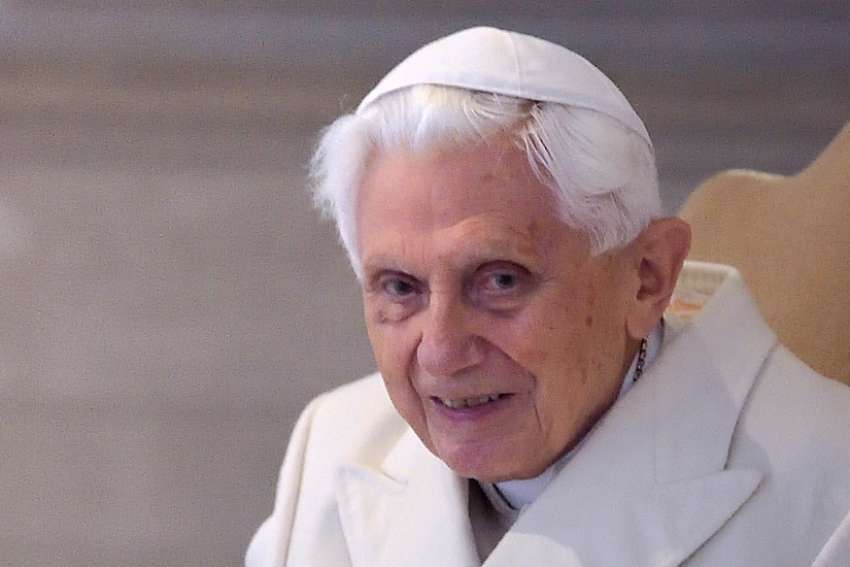It was not a kindly way to deal with a former pope but was perhaps prudent. Celestine had no opportunity to speak against his successor’s statements and actions.
Celestine’s imposed exile becomes pertinent in the light of the recent publication of an article on priestly celibacy by Pope Emeritus Benedict XVI. Publication comes when Pope Francis is about to release a document declaring whether married men can be ordained to serve as priests in remote regions. At the time he resigned, Benedict promised to be “hidden from the world” and to live “a life dedicated to prayer.” However, seven years later, his actions continue to garner headlines.
Benedict, it must be noted, wrote his article prior to the Amazon synod which raised the issue of mandatory celibacy. Apparently, he did not give his permission knowingly to be listed as a co-author of the book on celibacy along with Cardinal Robert Sarah. Nor did he seek to write at cross-purposes with Pope Francis. Nevertheless, the former pope’s article has further fomented dissent from Francis’ papal authority.
The British Catholic magazine, The Tablet, editorialized on this possibility after Benedict’s resignation and prior to Francis’ election in March 2013. The papal resignation, the magazine maintained, offers “a real danger of splitting the loyalties of hitherto faithful Catholics, particularly if the new pope does things, as he is more or less bound to do eventually, that depart from the policies of his predecessor and near neighbour.”
Benedict has not helped matters by continuing to wear the white papal cassock, live in the Vatican and asking to be called pope emeritus rather than say, bishop emeritus. These actions leave an impression that the Church has two popes rather than one. Beyond that, Benedict is not the culprit in the current controversy. Rather, some of his loyal, but scheming, followers are fomenting dissent.
At the time of his resignation, some of his supporters argued that he should not resign and even that a pope could not resign. Yet, with Benedict now still alive and ambulatory, his presence has been used to undermine his successor.
Benedict was a leading theologian and one of the wisest people of the 20th century. The documents released in the Vatileaks scandal of 2012, however, revealed that Vatican officials who were supposed to serve the pope regularly manipulated and out-manoeuvred him. That reality continues.
Canon law permits a pope to resign if “he makes the resignation and that it is duly manifested.” It says nothing about what the ex-pope does after his resignation. This needs to be clarified. For example, the privilege of resigning the papacy might include a forfeiture of the right to speak in public.
The wider issue is that the Vatican continues to be a pit of intrigue and political manoeuvring by some of its denizens. The Church that this portrays is far from holy, one still trapped in medieval machinations.
Popes Benedict and Francis hold differing perceptions of the main problem the Church today faces. For Benedict, the problem is external — we are beset by a dictatorship of relativism; for Francis, the problem is internal — we are too inward looking and claustrophobic when Christ has called us to be a field hospital for the world. Both perceptions are correct. But if the Church wants to witness to eternal truth and combat relativism, she needs to overcome palace intrigues which testify to relativism within the Church. She needs to breathe fresh air.
Catholic relativism is rooted in a clericalism which puts power before principle. The Second Vatican Council spoke of the role of the laity as bringing the Gospel to bear in a secular world. We remain far from realizing that vision.
But the Church’s structures would benefit from greater reliance on the experience of the laity who live in the so-called world of relativism. Such experience can teach that while relativism is a powerful force, most people seek to do good.
Clericalism is not a barrier against a corrupt world but has rather given rise to the Church’s own forms of corruption. It is the enemy within, an enemy which must be eradicated so the Gospel can be heard.
(Argan is program co-ordinator at Star of the North Retreat Centre in St. Albert, Alta.)


